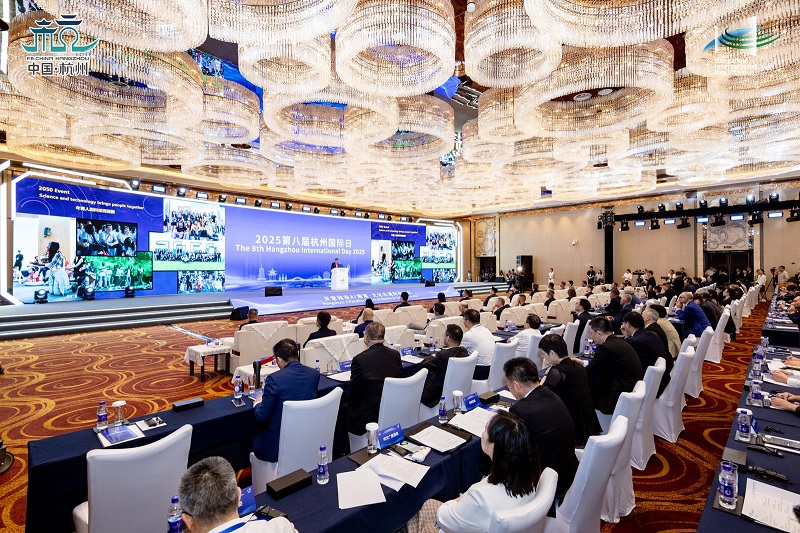China Theater Festival offers model for carbon reduction at large-scale events

Promotional material for Northward. [Photo/Courtesy of organizers]
The 19th China Theater Festival, one of the country's most important stages to display theatrical achievements, is being held from Sept 5 to 25 in Hangzhou, East China's Zhejiang province.
This 21-day cultural extravaganza has drawn particular attention under the label of "China's first carbon-neutral theater festival."
Driven by the China Federation of Literary and Art Circles and the Chinese Theater Association, the festival is not only showcasing cultural charm through art forms such as traditional Chinese opera and drama but also providing global large-scale events a Chinese model for carbon reduction via its zero-carbon practices.
The secret to the theater festival's carbon neutrality lies in the in-depth integration of culture and high-tech ecology. Relying on digital platforms, the organizers created scenarios for public engagement. Audiences are encouraged to use public transportation and shared bikes to head to theaters. E-tickets and e-program brochures cover almost every performance. Moreover, theater enthusiasts have proactively chosen to cycle or take the subway to reach venues, making "green travel" a daily habit. These details have turned "carbon reduction" from a slogan into concrete actions integrated into every step of the performance-viewing experience.
Users can directly allocate their accumulated green energy to support the "carbon neutrality initiative of the 19th China Theater Festival" on digital platforms, where the total amount of green energy contributed by the public according to relevant regulations can be used to offset the theater festival's carbon emissions.
What's more, the opening performance on Friday night in Hangzhou was Northward, adapted from Chinese novelist Xu Zechen's novel of the same name. Minimal use of props and reduced stage designs can be seen as another move to reduce carbon emissions while not reducing the final performance's charm at all.
Even more profound significance lies in its demonstration of the possibility for the low-carbon concept to transcend boundaries. With "zero-carbon" as its underlying theme, the theater festival's positioning as a role model has extended far beyond the cultural sphere with initiatives such as promoting a "Clean Plate Campaign" in dining areas to reduce food waste, using recyclable materials for stage construction, and even integrating "carbon footprint" courses into volunteer training.
This model of "using culture as the stage and low-carbon as the lead performer" provides a replicable carbon reduction template for industries including catering, tourism, and exhibition services. More importantly, through the power of art, the festival has awakened the public's environmental consciousness: low-carbon living is not an ascetic practice that sacrifices experience, but a new fashion compatible with improved quality of life.
The "breathable" theater festival in Hangzhou offers dual revelations: It not only uses art to demonstrate that cultural events can coexist and thrive with ecological protection but also shows the world through concrete practices that achieving "carbon neutrality" for large-scale events is not a "digital game" of technological stacking, but a collection of micro-actions that everyone can participate in.
While the stories unfolding on stage move hearts and minds, the carbon reduction efforts taking place off stage are equally worthy of remembrance. This, perhaps, is the unique wisdom that Chinese culture can contribute to global climate issues.
-
In Zhejiang's capital, 8th Hangzhou International Day opens
September 5, 2025
-
Hangzhou to host UNESCO Biosphere Conference in 30 days
August 25, 2025
-
Nine Hangzhou-based companies make Fortune Global 500 list
July 30, 2025
-
Visionary Pathway - Hangzhou Playbook
July 15, 2025



